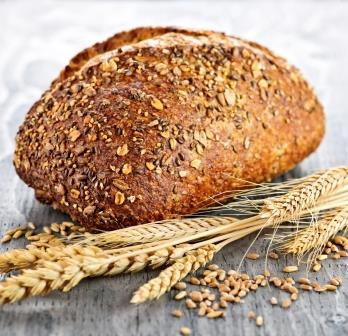In case you missed it, gluten-free dining is a pretty hot topic right now. Gluten seems to have become the new villain in the world of nutrition. The market for gluten-free
items is exploding, with Americans spending billions of dollars on gluten-free products each year. Are more of us developing gluten intolerances or is eating gluten-free just perceived as a healthier lifestyle? Read more to find out what the science says about the GF diet.
Gluten is a general term for the proteins found in wheat, rye, barley and other grains. It helps give bread its chewiness and affects the texture of other baked goods.Celiac disease is an autoimmune condition in which your body reacts poorly to the presence of gluten and attacks the lining of the small intestine. This reaction causes the villi (small, finger-like objects in the lining of your digestive track) to flatten, which prohibits proper absorption from taking place. Over time, celiac disease can cause serious health issues and the only treatment is to avoid gluten altogether.
Here’s the kicker: According to the National Institutes of Health, celiac disease affects less than 1% of the U.S. population.
So why are 17% of US households purchasing gluten-free products?
In 2011, a study by Gibson and colleagues found that gluten-containing diets seemed to cause gastrointestinal distress (although not to the same clinical degree as seen in celiac disease) for some individuals. The authors called these conditions “non-celiac gluten sensitivity” or “gluten intolerance.”
This study and others paved the way for the gluten-free movement. Anecdotal evidence from individuals with irritable bowel syndrome (IBS) and other gastrointestinal disorders curing themselves with the gluten-free diet flooded the Internet. Suddenly, we were hooked. Gluten free! Gluten free!
Until the same authors told us that these reported improved symptoms are likely due to that tricky old placebo effect!
Last year, in a much more rigorous study, researchers conducted a double-blind crossover trial with participants who self-reported having non-celiac gluten sensitivity or IBS. They were placed on a series of diets that contained different amounts of gluten (high gluten, low gluten and no gluten). What were the results? Basically, it didn’t matter what type of diet participants consumed: their symptoms of bloating, gas, and nausea persisted. Participants’ blood and fecal biomarkers also remained unchanged throughout the study.
So…what’s the deal with gluten?
According to the most recent science, self-diagnosed gluten sensitivity seems to be just another game your mind is playing on you. If you expect to feel better after removing gluten from your diet, then you will. It could also be that people are substituting gluten-containing items for more healthy foods, like fruits and vegetables.
Don’t believe us? Conduct your own experiment. InsideTracker lets you monitor your own biomarkers of health. See what effect your diet and lifestyle has on your body’s inner chemistry by trying out our new Ultimate Plan.
